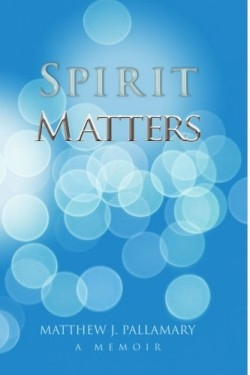Spirit Matters
Matthew J. Pallamary’s well-crafted and fast-paced memoir recounts his experiences growing up poor in a violent Irish Catholic Boston ghetto. This is not a book for the faint of heart; gang violence racial tensions drugs theft and murder formed the backdrop of the author’s daily life; his goal was to perfect his skills and become a career criminal except for one thing: he “never wanted to hurt anyone.” Deep down he felt a call to “do good” but nothing in his environment except for his mother’s love provided the resources to make that a possibility.
Pallamary was aware that somehow he was “protected” and not just by his mother who had a knack for appearing just in time to extricate him from a dangerous situation or the clutches of the police. Readers will follow the author through some of the darkest days of his life the loss of friends and loves near-escapes from death terrifying drug-induced hallucinations as well as his military service and visionary experiences brought on by LSD and other drugs. The author’s path to spiritual awakening led him to renounce drug use for a time become a vegetarian and learn how the sacramental use of visionary plants could serve people on spiritual quests. His studies led him not only to the likes of Timothy Leary and others but to the ancient wisdom of the indigenous peoples of the Americas and to the shamans of the Amazon where his desire to find truth in visionary experiences was realized.
The author of four other books one of which Land Without Evil was awarded a San Diego Book Award for mainstream fiction Pallamary frequently visits keepers of the ancient wisdom of the Americas to study shamanism and indigenous cultures.
The author’s story carries both hope and warning: it is possible to come from a background like his and make something of one’s life but he makes it obvious that most people who grow up in such situations never do. Those who abuse drugs will find potent warning in the first half of the book: the dangers of drug use and the unlawful and even murderous acts so often involved in obtaining them can scar souls snuff out lives and create pain that can last for generations. The author given the circumstances of his life is certainly qualified to steer people out of harm’s way but coupling illegal drug use with a search for spirituality may have just the opposite effect. The focus of the second half of the book is more wholesome; for readers interested in the sacramental use of plants and the visions they produce it paints a vivid description of how native shamans of the Amazon offer a chance to have this vision quest in sacred space under the guidance and care of one who treats both the plants and the seeker who ingests them with respect.
Disclosure: This article is not an endorsement, but a review. The publisher of this book provided free copies of the book and paid a small fee to have their book reviewed by a professional reviewer. Foreword Reviews and Clarion Reviews make no guarantee that the publisher will receive a positive review. Foreword Magazine, Inc. is disclosing this in accordance with the Federal Trade Commission’s 16 CFR, Part 255.

